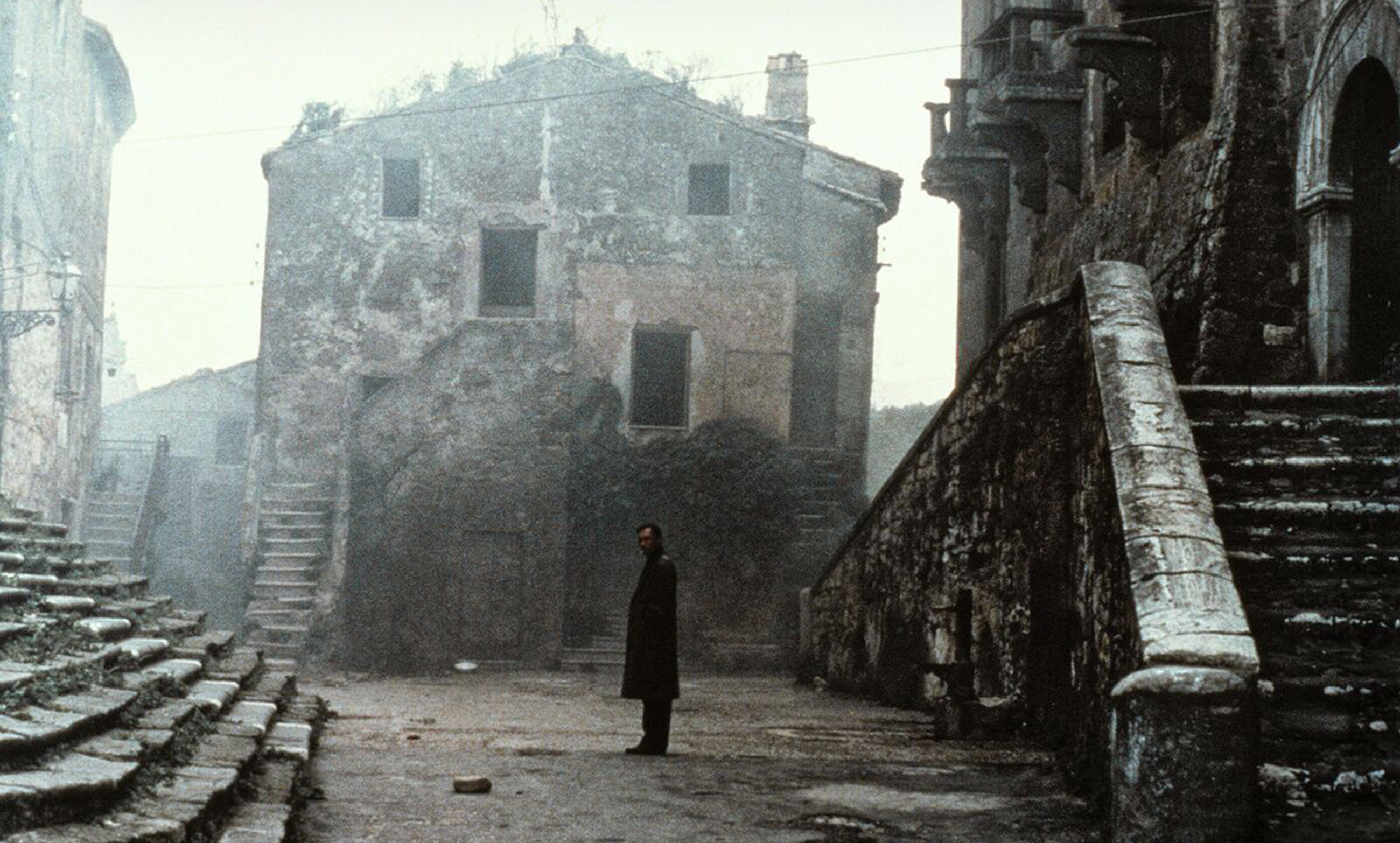Conversations
The Beginning of Poetry
A Lost Interview with Andrei Tarkovsky
By Jonathan Cott

Andrei Tarkovsky. Photographer unknown. HIP/Art Resource, NY
On the fortieth anniversary of the premiere of Nostalghia, the penultimate and perhaps least understood of the films of Andrei Tarkovsky (1932–1986), Ursula presents a never-before-published conversation with the director. Conducted by Jonathan Cott—a longtime contributing editor of Rolling Stone and one of the most wide-ranging interviewers of his time (Susan Sontag, Federico Fellini, Bob Dylan, John Lennon, Henry Miller, Chinua Achebe)—the brief exchange touches on Tarkovsky’s deeply poetic approach to cinema, an aesthetic bearing he described as “sculpting in time.”
In September 1983, when Andrei Tarkovsky was being honored at the Telluride Film Festival, he agreed to answer a few questions from me for an article I was writing about his newest film, Nostalghia. I was calling him from New York City. I posed my questions on the phone to the Polish film director Krzyzstof Zanussi, who translated the questions into Russian and then relayed Tarkovsky’s answers back to me in English. According to Zanussi, “Tarkovsky and I were standing together behind the front desk of a small Telluride hotel, and people were coming and going in front of us. Through the doorway there was a stream of water going by with an enormous mountain vista in front of us ... and here we were talking about poetry and fire and air and earth and water. The whole thing was so strange, and strangely beautiful.”—Jonathan Cott
Cott: The American poet Robert Duncan once wrote:
Often I am permitted to return to a meadow
as if it were a scene made-up by the mind,
that is not mine, but is a made place,
that is mine, it is so near to the heart....
To me, your films somehow seem to be imbued with the spirit of these lines.
Tarkovsky: I thank you for your right understanding. It pleases me because these lines say something about the preservation of individual personality, which is the basic value and sign of the freedom of man.

Film still from Andrei Tarkovsky, Nostalghia, 1983. AJ Pics/Alamy Stock Photo

Film still from Andrei Tarkovsky, Nostalghia, 1983. AJ Pics/Alamy Stock Photo
Cott: I often feel in your movies that, aside from the human characters who appear, the truly significant presences are the four elements— fire, water, earth and air.
Tarkovsky: In making my last two films, I noticed that things have turned out as you’ve said. But from the very beginning that wasn’t really conscious or intended. On reflection, I think that these four elements are just a way for me to suggest, cinematographically, my notion of time.
Cott: I felt that the first image in Nostalghia—that of a hill and a horse—conveyed a haunting sense of timelessness, as if it might have been both a beginning or an ending; and, in fact, that very image is both the first and last thing one sees in your film.
Tarkovsky: At its conclusion, you become aware that the film begins with the ending—the image belongs to the end. It is at the conclusion of the film that the protagonist understands that he cannot carry on with his life as he had anymore. And everything that happens in Nostalghia, between its beginning and its end, is like an explanation of what brought the protagonist to such a conclusion.
Cott: I also felt that you were suggesting that beginnings and endings not only imply each other but, at their root, have a depth to them that transcends time—as if you were saying something about the nature of beginnings and endings.
Tarkovsky: Yes, that too.

Movie poster for Nostalghia’s release in Russia. Artist: Igor Markovich Maystrovsky. Collection Russian State Library, Moscow. HIP/Art Resource, NY
Cott: In Nostalghia, there’s a moment when the protagonist sees a little girl who’s sitting by the water, and he says to her, “Are you content with life?” And she looks up and tells him that she is. You have children in almost all of your movies, and they all seem to be content with life, whereas the adults are often shown to be living a life that is filled with pain.
Tarkovsky: Exactly. Because for me, childhood was always the basis for all my future feelings, a cradling for all my hopes and expectations.
Cott: The Italian poet Giacomo Leopardi wrote that “certain ideas and images of things that are fantastic and impossible and strange delight us in our imagination because they recall to us our most remote memories—those of our childhood.”
Tarkovsky: I think that all poets have that same feeling. It’s something very basic to them.
Cott: Leopardi stated that childhood means poetry.
Tarkovsky: No. The loss of childhood is the beginning of poetry.
Cott: If someone says, “We must go back to point where we took the wrong turn,” was that where the wrong turn occurred?
Tarkovsky: When man started to think that he was a social being instead of recognizing that he is part of nature, that’s when we made the wrong turn.
–
Jonathan Cott is the author and editor of more than forty books, including Dinner With Lenny: The Last Long Interview with Leonard Bernstein (2012) and Susan Sontag: The Complete Rolling Stone Interview (2013). He has published interviews with numerous filmmakers, including Federico Fellini, Jean-Luc Godard, Werner Herzog and Louis Malle.
